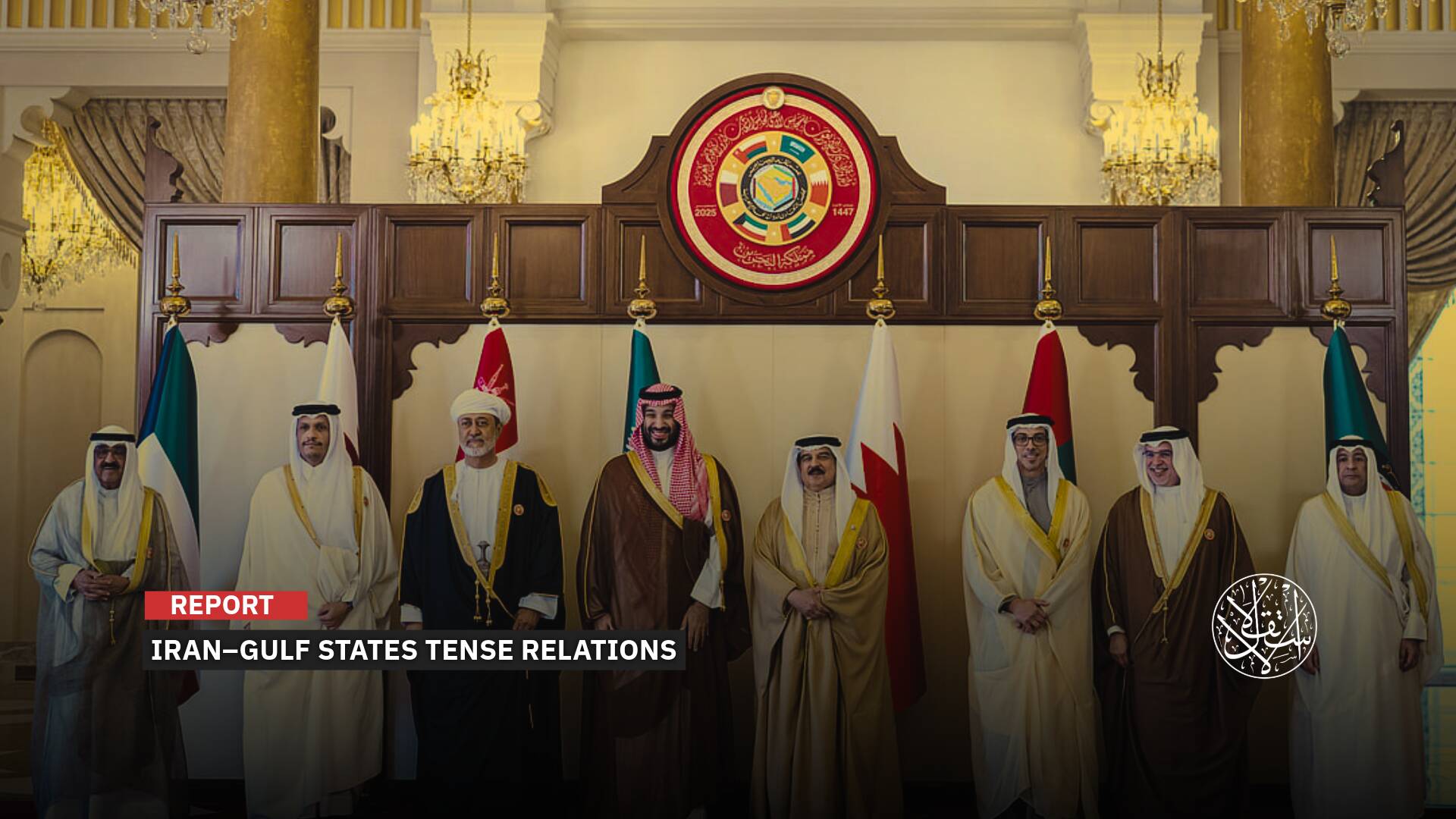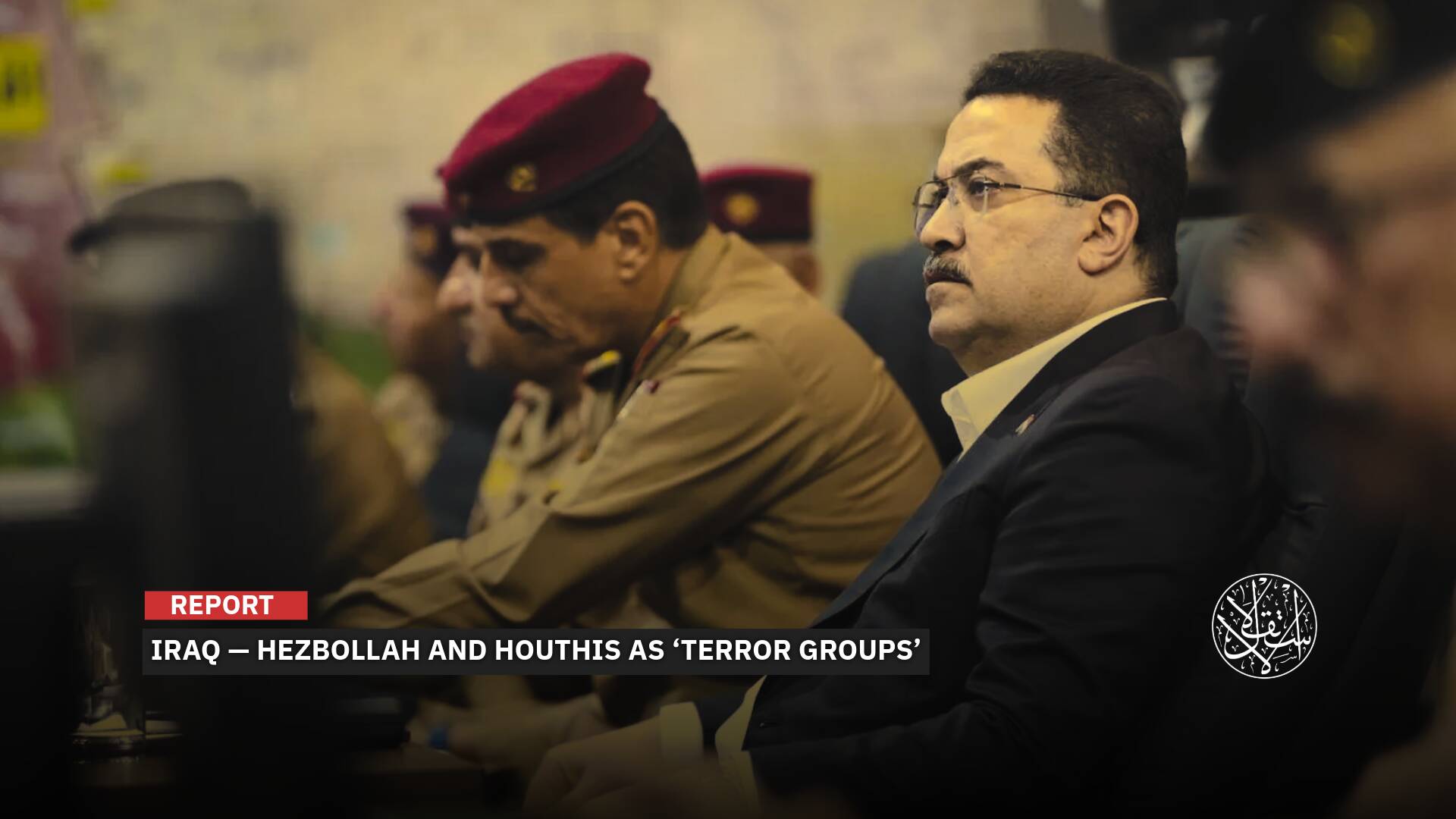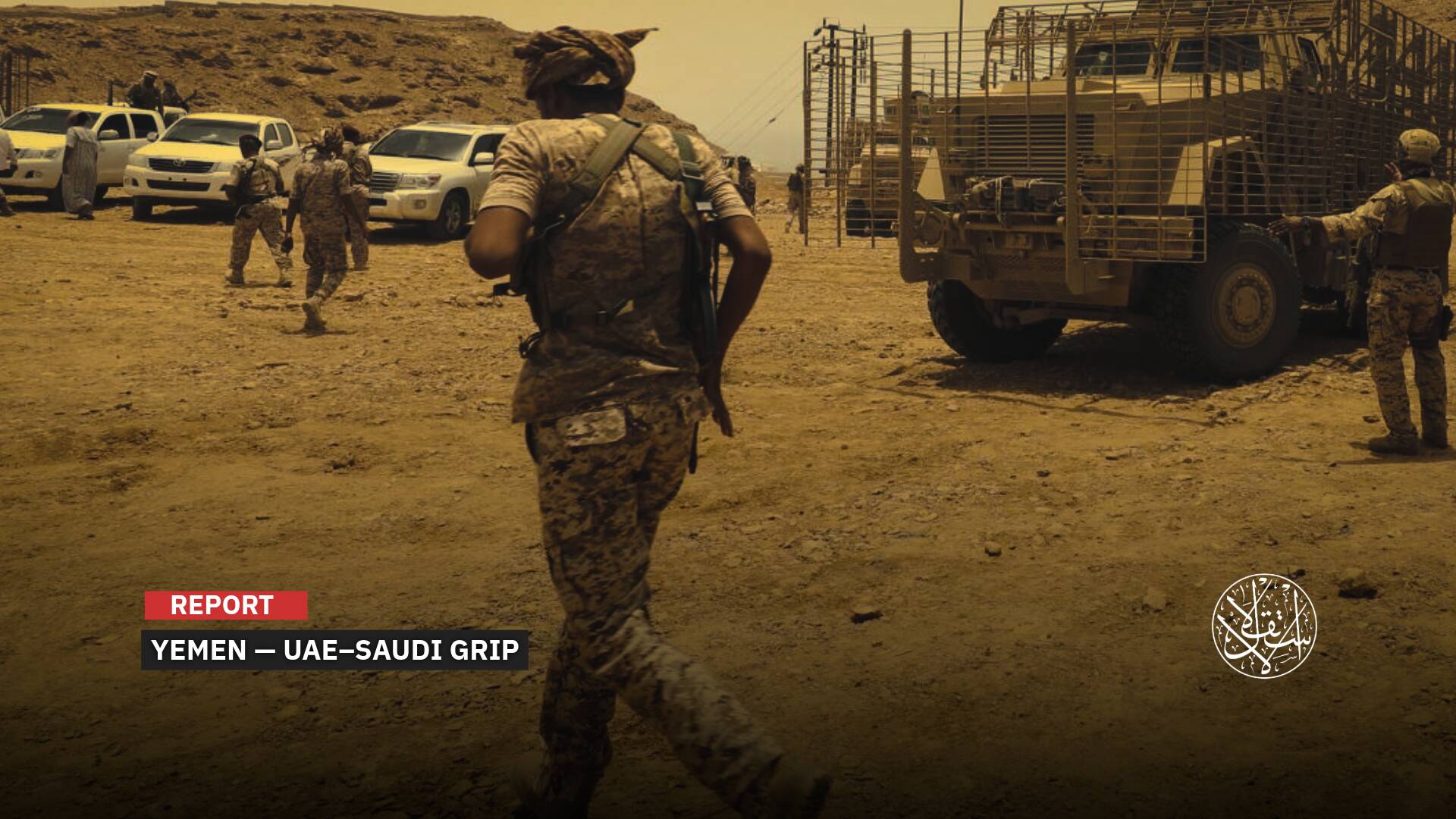El-Sisi Receives Haftar, His Sons, and al-Burhan — But Where Does Hemedti Stand?

Sisi receives Sudan’s Sovereign Council President Abdel Fattah al-Burhan and Eastern Libya’s militia commander Khalifa Haftar
The semi-private gathering held in Egypt’s coastal city of al Alamein on 30 June 2025—bringing together Egyptian head of the regime Abdel Fattah el-Sisi, eastern Libyan militia commander Khalifa Haftar, and his sons Saddam and Khaled, alongside Egypt’s intelligence chief Hassan Rashad—has sparked a flurry of speculation.
El-Sisi’s meeting with Haftar and his sons, particularly so soon after the Egyptian Ministry of Defense gave Saddam Haftar, widely seen as his father’s military heir, a high-profile official welcome, carries significant weight in both timing and composition—raising questions about the agenda and underlying intentions.
Egyptian and Libyan analysts have interpreted the meeting as a form of “summons,” likely aimed at addressing the crisis in the border triangle between Egypt, Libya, and Sudan—an area seized on June 15, 2025, by Sudan’s Rapid Support Forces (RSF) militia, led by Mohamed Hamdan Dagalo (Hemedti), with direct backing from Haftar’s militia troops.
The incursion, viewed as a serious threat to both Egyptian and Libyan national security due to the RSF militia’s hostility toward Cairo, may have prompted head of the regime el-Sisi to urge Haftar to withdraw support for the militia’s attempts to consolidate control over the Sudanese side of the triangle—something Egypt staunchly opposes.
Another camp of analysts and political observers has suggested that the meeting may have been convened at the request—or under the mediation—of the United Arab Emirates, which maintains close ties with both Libyan militia commander Khalifa Haftar and Sudan’s RSF militia leader Mohamed Hamdan Dagalo (Hemedti), as part of broader regional ambitions often at odds with Egyptian interests.
According to this view, Haftar may be acting as an intermediary between el-Sisi and the UAE-backed Hemedti, with Cairo being nudged toward adopting a political—not military—role in mediating between Sudan’s army and the RSF militia.
This theory gained further traction following el-Sisi’s separate meeting with Sudanese Sovereignty Council head Abdel Fattah al-Burhan, reportedly to discuss the border triangle crisis and the possibility of Egypt spearheading a peace initiative in Sudan, given the ongoing stalemate in the conflict.
Why Haftar and His Sons?
The Haftar family, spread across five sons, has been described by Middle East Eye on August 10, 2022, as a “military-business dynasty.”
Two of them—Saddam and Khaled—serve as officers in the eastern Libyan army built by their father.
Despite lacking formal military education, both were promoted by Khalifa Haftar to senior ranks.
Today, Khaled Haftar holds the position of Chief of Staff of Haftar’s militia forces, while Saddam Haftar commands the ground forces as a lieutenant general.
Recent moves suggest that Saddam Haftar is positioning himself as his ailing father’s heir apparent—serving both as Khalifa Haftar’s militia military enforcer and unofficial diplomatic envoy, particularly to the UAE and “Israel,” according to a well-placed source quoted by Middle East Eye.
Meanwhile, the third son, al-Sadiq, oversees finances and reconstruction efforts in eastern Libya, effectively managing the family’s business empire. The fourth, Belqasem, serves as a senior political advisor to their father.
The fifth son, millionaire Okba Khalifa Haftar, is a businessman who owns Eastern Brothers Group, LLC—a company founded in the United States in 2014.
Head of the regime’s el-Sisi’s meeting with three of the Haftar sons, held in the presence of General Intelligence chief Hassan Rashad, appeared to be a formal nod to their growing authority and a symbolic passing of the torch from their ailing father.
The gathering signaled Cairo’s intent to engage directly with the heirs on key bilateral matters—chief among them, the volatile border triangle shared by Egypt, Libya, and Sudan.
This was the first meeting bringing together el-Sisi and Haftar’s sons—Saddam and Khaled—in the presence of their father.
And because it resembled a family-style gathering to hand over eastern Libya’s files from the elder Haftar to his sons, in el-Sisi’s presence, it was striking that the Libyan flag was not raised—unlike the case with al-Burhan.
Prior to this, Saddam Haftar received a high-level military welcome from the Egyptian army—a move signaling Cairo’s intent to elevate the likely heir in eastern Libya amid rising tensions in the border triangle with Sudan.
The warm reception extended to Saddam was more than ceremonial; it was also widely seen as a pointed message to the UAE that Egypt remains a central player in the Libyan file—and that Haftar and his sons remain firmly under Cairo’s influence.
Also notable was Egypt’s emphasis that “national security is affected by what happens in Libya,” a clear signal to Haftar that any military escalation in Libya, Sudan, or the border triangle would directly impact Egypt.
Diplomatic sources speaking to Al-Estiklal confirm that the core issue behind el-Sisi’s summons of Haftar and his sons to the meeting was the border triangle crisis—despite its absence from the official closing statement.
Sources clarified that el-Sisi explicitly demanded Haftar cease providing weapons, personnel, or mercenaries to the Rapid Support Forces (RSF) militia led by Hamid Idris (Hemedti), after Khartoum halted the entry of Hemedti’s militia forces and mercenaries into the border triangle—an area they seized with Haftar’s backing before withdrawing under Egyptian threats.
Khartoum has accused Haftar’s militia forces of supplying arms and mercenaries to Hemedti’s militia to control the disputed border region, a move firmly rejected by Cairo.
Consequently, el-Sisi made clear to Haftar that he must not interfere in Sudanese affairs.
Egypt previously warned the RSF militia against deploying armored vehicles and advanced drones into the border triangle.
There have been reports of joint Egyptian-Sudanese airstrikes targeting Hemedti’s militia, supported by Haftar’s militia mercenaries, in the disputed border area.
Egyptian sources suggest that head of the regime el-Sisi’s remarks in the statement following his meeting with Haftar—calling for the “removal of mercenaries and foreign fighters from Libya”—were a clear message to the eastern Libyan commander to rid the region of Wagner mercenaries, African militias, and other foreign forces still present in eastern and southern Libya supporting Haftar’s militia troops.
During their meeting, el-Sisi reiterated his support for stability in Libya, urged the withdrawal of all militia mercenaries, and called on Haftar to enhance coordination among Libyan factions to establish a comprehensive political roadmap aimed at holding simultaneous presidential and parliamentary elections.
The UAE-backed London-based newspaper al-Arab reported in early July 2025 that President Sisi’s meeting with Haftar and his two sons in al Alamein reflects Cairo’s growing concerns over Haftar’s ties with the RSF militia.
The report explained that Cairo, wary of the RSF militia’s control over the region, fears the potential repercussions this could have on Egyptian interests.
The newspaper, reflecting the UAE’s perspective, stated that "the Egyptian side remains uneasy about any cooperation between the Libyan army and the RSF militia, and the potential negative repercussions this could have on Cairo’s outlook regarding the Sudanese crisis."
It added that Cairo has leveraged its close ties with Haftar to prevent any destabilization in the region that could embarrass the Sudanese military and have adverse consequences for Egypt.
The Border Triangle
Since June 11, 2024, the conflict in Sudan has escalated to the country’s far northwest, reaching the contentious "Triangle" border area with Egypt and Libya.
The RSF militia seized control of the region, inflicting heavy casualties and equipment losses on the Sudanese army.
The army acknowledged defeat, announcing a temporary withdrawal and accusing the forces of renegade Libyan militia commander Khalifa Haftar—who controls eastern Libya—of involvement in the assault.
It further claimed the operation was part of an international conspiracy, implicitly pointing to the involvement of the UAE.
The Sudanese army later announced it had withdrawn from the “Triangle” border region shared by Egypt, Sudan, and Libya following an offensive by the RSF militia.
Sudan’s Ministry of Foreign Affairs stated that the Triangle area—on the Sudanese-Libyan border—has long been a gateway for weapons and mercenaries linked to the UAE-backed RSF militia, operating in coordination with Khalifa Haftar’s militia forces, which are also supported by Abu Dhabi.
Militia forces loyal to Khalifa Haftar's army in eastern Libya have infiltrated the border regions with Sudan and Egypt, lending support to RSF militia commander Mohamed Hamdan Dagalo, known as Hemedti, whose troops have swept through the area.
This development has sparked alarm and unease in Cairo, already grappling with a host of security challenges including the ongoing war in Gaza, tensions with “Israel,” the dispute over Ethiopia’s Grand Renaissance Dam, water scarcity, and other pressing issues.
The so-called "Triangle Zone" occupies a strategic position in northwest Sudan, serving as a crucial gateway linking Sudan, Libya, and Egypt.
This corridor facilitates cross-border trade and hosts widespread mining activities, notably gold extraction—an economic prize sought after jointly by Hemedti and the United Arab Emirates.
The region has long been a hotspot for illicit migrant networks, prompting Sudan, Libya, Chad, and Niger to sign a quadripartite agreement in 2018 to establish a joint force tasked with securing the borders.
The mandate of this force also included curbing the movement of foreign fighters and combating human trafficking.
However, ongoing instability in Libya at the time prevented the full implementation of the agreement.
Since the fall of Muammar Gaddafi’s regime in 2011, an extremist Salafist militia known as “Sabil al-Salam” has asserted control over the border triangle.
The group later aligned itself with, and was integrated into, the ground forces commanded by Haftar’s son, Saddam.
Led by Abdul Rahman Hashem al-Zwai, the militia serves as the military arm of the Zwai tribe, which is predominantly based in Libya’s oil crescent region in the north, as well as the southern oases of the country’s southeast.
Previous reports by United Nations sanctions committees have accused the group of involvement in smuggling, irregular migration, and the transfer of supplies to the RSF militia.
The Sudanese army has confirmed that the militia fighters who backed Hemedti in the Triangle Zone belonged to these Haftar-militia aligned Salafist factions.
On the Sudanese side, the Triangle area has been under the control of the “Joint Force” — an alliance of armed movements aligned with the military.
Meanwhile, Sudanese military intelligence and the General Intelligence Service have deployed personnel solely to coordinate with this force.
Following the joint offensive by Hemedti’s RSF militia and Haftar’s militias on the Triangle region, the Joint Force withdrew, allowing the RSF militia and Haftar’s militia mercenaries to seize control.
This shift prompted Egypt to intervene, pressuring Haftar to pull back from the Sudanese side of the Triangle, and to cease backing Hemedti’s militia forces—who are in open hostility with Cairo—as their presence there is seen as a threat to Egypt’s national security.
A Sudanese army officer told Mada Masr on 15 June 2025 that the RSF militia’s objective in opening a new front in the border desert was to threaten Northern State and relieve pressure on their troops engaged in the conflict in the Kordofan region.
This has further complicated the Sudanese army’s efforts to break the siege of al Fashir, while also securing commercial revenues from the Triangle region and maintaining military supply lines across the Libyan border.
Military analyst Ahmad al-Tijani noted that the Sudanese army and its allied forces’ significant battlefield victories, alongside the repeated weakening of the RSF militia, have prompted the United Arab Emirates to reveal its involvement in the Sudanese quagmire.
This has taken the form of intensified support for Hemedti, including advanced military hardware, air defense systems, and long-range drones, alongside a surge in mercenary recruitment and their deployment towards the frontlines.
Al-Tijani told Mada Masr that Haftar’s military intervention has placed the Egyptian government in a position where it can no longer remain passive—particularly as the fighting has shifted to its southwestern borders, posing a direct threat to national security.
He emphasized that the threats posed by the RSF militia and their hostile stance towards the Egyptian regime are key factors likely to push Cairo towards adopting a more decisive and explicit position on the unfolding situation in Sudan.
A senior Egyptian diplomatic source told Al-Estiklal that this was the primary motive behind Cairo’s summons of Haftar and his commanders (his sons), warning them that their continued support for Hemedti constitutes a direct threat to Egypt’s national security.
In a speech on June 3, 2025, Hemedti renewed his accusations against Egypt, alleging that Cairo had supplied the Sudanese army with eight aircraft.
Meanwhile, Sudanese leader Abdel Fattah al-Burhan urged head of the regime Abdel Fattah el-Sisi to pressure Haftar to halt support for Hemedti’s militia forces through loyal Libyan militias and Emirati military equipment, and to prevent the smuggling of weapons into western Sudan.
‘Warlords’
The United Arab Emirates denies arming any party in the conflict, but the United States has intercepted regular phone calls between Hemedti and Emirati leaders, including Vice President Mansour bin Zayed al Nahyan, according to The New York Times on June 29, 2025.
Officials told the newspaper that U.S. intelligence agencies, through phone surveillance operations, concluded that Hemedti maintains a direct relationship with two senior UAE figures, Sheikh Mohammed and Sheikh Mansour.
U.S. officials have also identified a senior Emirati figure orchestrating a network of front companies that helped finance and arm Hemedti’s militia through an airbase in Chad, operating under the cover of a field hospital funded by two charitable organizations.
The New York Times reported that U.S. officials observed Sheikh Mansour regularly communicating with Haftar, quietly managing the relationship.
The Emiratis are reportedly betting financially on Haftar, which has led to a steady flow of Emirati arms into Libya—and to Hemedti’s militia forces as well.
The paper added that this Emirati prince played a pivotal role in efforts to arm Hemedti’s militia forces, fueling a devastating conflict that has precipitated famine and triggered the world’s largest humanitarian crisis.
It noted that “Sheikh Mansour has courted warlords and authoritarian rulers as part of a broad Emirati campaign to secure strategic ports and mineral resources, confront Islamist movements, and cement the Gulf state’s position as a key regional power.”
The New York Times further explained how the Arab Spring of 2011 marked a turning point for the al Nahyan family.
Fearful of Islamist ascendancy following the fall of autocratic regimes, the Emiratis watched anxiously as Sheikh Mohammed bin Zayed conveyed his concerns to Western officials and vowed to halt their advance.
The UAE thus intervened in Egypt, Yemen, and Libya, backing military takeovers or financing rebels and forging alliances with warlords.
It was in this context that Mansour took on a key role, supporting Hemedti’s militia forces in Sudan to seize control of ports and gold reserves, while combating the army that Abu Dhabi claims is dominated by Islamists.











